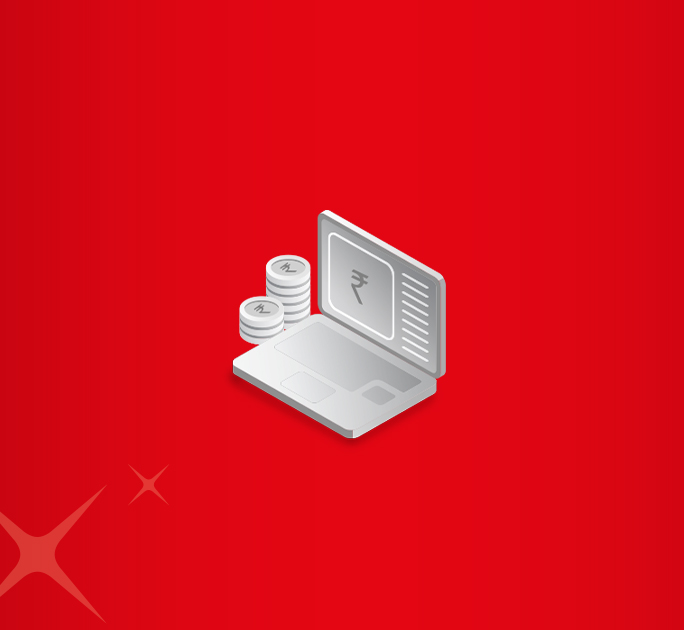As an investor, how do you navigate through times when markets are volatile? What do you do when there is a market correction? Investing in mutual funds during volatile times is much like surfing. If you pick the right type of mutual funds, you can sail through the high waves of volatility. In this article, here’s a low-down on types of mutual funds that you can invest in when the market is highly volatile.
Large cap funds
As an investor, you can pick from different types of mutual funds for specific financial goals. Understanding each can be confusing. If you are a first-time investor looking for modest returns and low risk in an otherwise volatile market, you can pick from large cap mutual funds. Large-cap funds are relatively safe and can give you high returns especially when market prices dribble between new lows and highs.
What Is A Large Cap Fund?
These schemes invest in large-cap companies or companies with large market capitalisation at or above Rs. 200-300 billion. These funds invest in blue-chip companies(typically 100 largest listed companies in India). For beginners, market capitalisation is what you get when you multiply the stock price of each share with the outstanding shares of the company in the market. This is a guided estimate of the valuation of the company.
Why Should You Pick Large Cap Funds From Different Types Of Mutual Funds Available To You?
-
Decent Returns
Large-cap funds have provided stable returns to investors in the last decade. -
Safety
These funds are recommended for risk-averse investors, who do not mind stable returns. The companies are considered safe because they have a capital base large enough to withstand market volatility or economic downturns. -
Market volatility
These funds become more relevant when markets are volatile. Such schemes invest only in absolutely dependable companies that regularly disclose information, have a good market lead, and do their research well. You can quickly know the people running these companies and their operational track record. -
Wealth creation
If you are looking to create wealth in the long run to meet future financial needs, investing in large-cap funds is ideal for you. -
When markets are likely to correct
Markets are often said to be driven by sentiments. Thus, an excellent economic run could make investors over-enthusiastic, and this could lead to overvaluation of market prices. There is a way the market corrects itself for this overvaluation. During such a correction, if you have invested in large-cap funds, you will stand to gain due to the stability factor.
Fulfill Your Life Goals With Mutual Funds
Arbitrage Funds
There are again different types of mutual funds for the experienced investor. For the seasoned ones, arbitrage funds are a good bet.
What is an arbitrage fund?
An arbitrage fund is similar to an equity mutual fund. Arbitrage funds make money off the difference in prices of an asset in two markets - the equity and futures markets. Let us take a look at the characteristic features of arbitrage funds.
-
Low Risk
Since the fund invests in derivatives, one may mistake it for high risk and high return product. But, the investment in arbitrage funds is low risk, and returns are in line with what you may earn on debt funds as they always take-covered positions only. Relatively new investors should seek expert advice while investing in such products. You should ask for help from financial advisors before investing in arbitrage funds. Arbitrage funds do not have risks associated with derivative investing and here’s why. The risk that comes with volatility in the cash market is countered with taking an opposite position in the futures market. -
The arbitrage advantage
Arbitrage funds profit from the difference between equity prices in the cash and futures market, while the difference lasts. They lock in profits by taking equal and opposite positions in cash and futures markets. For instance, stocks of ABC company are trading at Rs 100 in the cash or spot market. The same stock is trading at Rs 103 in one-month futures market. How can the fund profit from this price difference? They will buy it cheap at Rs 100 in the cash market and sell it from the holding of one-month futures at Rs 103. Now, let us assume the price of the stock on the settlement day is Rs 105. The investor will gain Rs 5 in the cash market because the stock was bought at Rs 100. But, the person will make a loss of Rs 2 in the futures market, because the pre-decided stock price was Rs 103. Overall, the arbitrageur makes a neat arbitrage of Rs 3 (Rs 5 - Rs 2) from the transaction. In another scenario for the same example, if the stock price of ABC is Rs 97 on the date of settlement, the arbitrageur still stands to gain. The investor will make a loss of Rs 3 in the spot market because of buying it at Rs 100 in the spot market. However, the person will make up for it with a gain of Rs 6 in the futures market. The investor will sell it at a predetermined price of Rs 103 in the futures market, pocketing a net gain of Rs.3. The profits feed into the fund’s returns. -
Ideal for volatility
In case of market volatility, arbitrage funds stand to gain slightly more. This is because volatility in prices presents more frequent opportunities to profit from the difference in prices of spot and futures segments. This helps reinvesting and more frequent churning of the fund. When markets are calm, the positions are held until futures contracts expire, which is a month-long period. Here, returns are aligned with what you may earn on short-term debt funds. -
Tax advantage
Arbitrage funds have a tax advantage over some other products. Arbitrage funds are taxed as equity funds at 15% for short-term capital gains if held for less than 1 year and 10% for long-term capital gains if held for more than 1 year. The dividend distribution tax for dividends paid out by arbitrage funds is lower at 11.648%.
Exchange-traded funds
Among the different types of MFs, passive funds like the exchange-traded funds do well during particularly rough times because of their lower expense ratio.
An exchange-traded fund is benchmarked to indices like NIFTY, CNX or BSE Sensex. Units of ETF are traded on exchanges quite similar to how stocks are traded. For instance, you can buy and sell units of mutual funds in real-time at continually changing prices of stock exchanges.
While buying ETFs, you are essentially buying into an exchange-traded mutual fund that tracks the yields and returns of its benchmark index. This helps you manage your expected returns accordingly.
ETFs or indexing is catching pace in Indian markets, thanks to the Government’s support received for these products to deepen the stock market. Several Government fund management bodies such as EPFO and Department of Investment and Public Asset Management (DIPAM)invest in ETFs.
SIPs
SIPs allow you to invest small amounts regularly in equity mutual fund schemes. This is a suggested route for new investors. This gives investors access to a portfolio of diversified stocks across sectors and industries cherry-picked by expert fund managers.
How do SIPs help during high volatility?
Investing in SIPs helps you get rid of your concerns about market volatility. When you invest in SIPs, you do not need to take the headache of timing the markets when there is a market correction. Technically, a market correction indicates a price revision of typically up to 10% in a stock index. These corrections are often temporary. The market discovers the optimum valuation of a stock in the process of price discovery.
When the markets are choppy, and it is difficult to predict price behaviour, experts suggest that investors should hold on to their SIPs for the long run. Holding on to the SIPs will iron out the impact of these sharp and temporary market corrections in the long term.
When prices fall, you can accumulate more units of SIPs, and when rates rise, you can limit your buys. Even if you are a seasoned player, opting for SIP can work in your favour. You can make lump sum investments in SIPs when the markets undergo correction to take advantage in the long term.
DBS Bank offers Mutual Funds that are instant, paperless, signatureless – even transaction fee-less! What’s more? You get to choose from 250+ Mutual Funds across 15 top-performing asset management companies. So why wait? Login to digibank (app or internet banking) and start investing in a flash with instant Mutual Funds on DBS Bank.
Read up more on Mutual Funds here
Mutual Fund investments are subject to market risks, read all scheme related documents carefully before investing.






